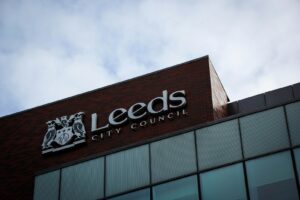Germany’s nine-euro train and bus tickets over the summer allowed those on low incomes to socialise more, according to a new study.
The fare was launched in June this year to help households cope with inflation and rising prices, with passengers able to anywhere across the nation for just €9 euros a month.
Research by the Institute for Transport and Space at the Erfurt University of Applied Sciences has now shown the scheme improved accessibility for low-income households, allowing them to take part in more leisure activities and improving quality of life.
The news comes as the UK grapples with costly train prices, widespread cancellations and numerous rail strikes.
Dr Claudia Hille, who led the study, explained: ‘The results of our study are impressive: the 9-euro ticket has in many cases given people with low-incomes access to mobility and thus social participation that was not previously possible for them. When the ticket for a trip to a specialist become an insurmountable obstacle or people are lonely because the price of a ticket determines whether they can maintain personal contacts, this shows a glaring social grievance.’
1,157 questionnaires were reviewed and results showed many respondents travelled more frequently than they would have before the fares introduction, with lower income groups taking the most advantage of the scheme.
Respondents reported travelling less by car and lower income groups took part in leisure activities more, with written comments showing an improvement in life satisfaction.
A separate study also found the low fares helped to save 1.8 million tons of CO2, the equivalent carbon emissions used to power 350,000 homes for a year.
The German government is now considering setting up a successor initiative to continue to improve access to public transport, but this scheme won’t be as cheap – prices are indicated to range between 49 and 69 euros for a monthly pass.
‘The discussion about a successor ticket thus also becomes a question of how equitably we want to shape our transportation system,’ continued Dr Hille. ‘In view of the study results, a successive plan should also be orientated toward the needs of lower income groups, because for them the tickets has brought a real gain in terms of quality of life.’
Other countries are also offering lower price train and bus fares to help citizens cope with the cost of living crisis – Austria launched its KlimaTicket in 2021, offering access to all public transport services for a year, while Spain has made all train journeys under 300 kilometres free until the end of the year.
Photo by Daniel Abadia

















Leave a Reply